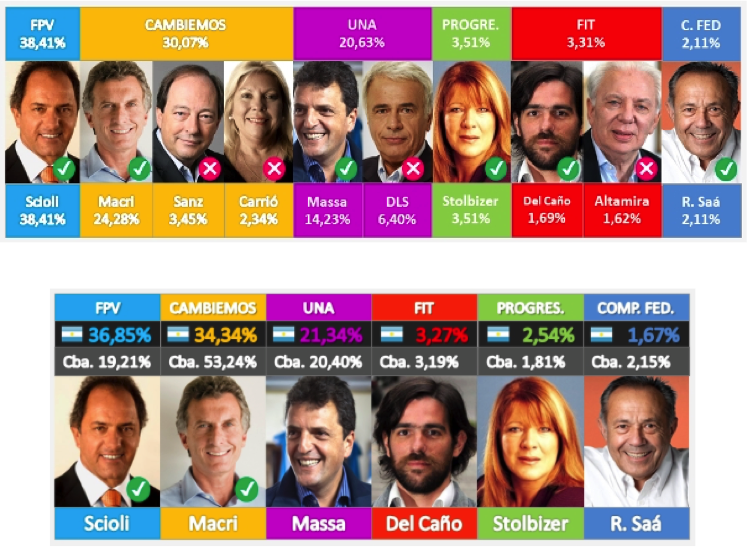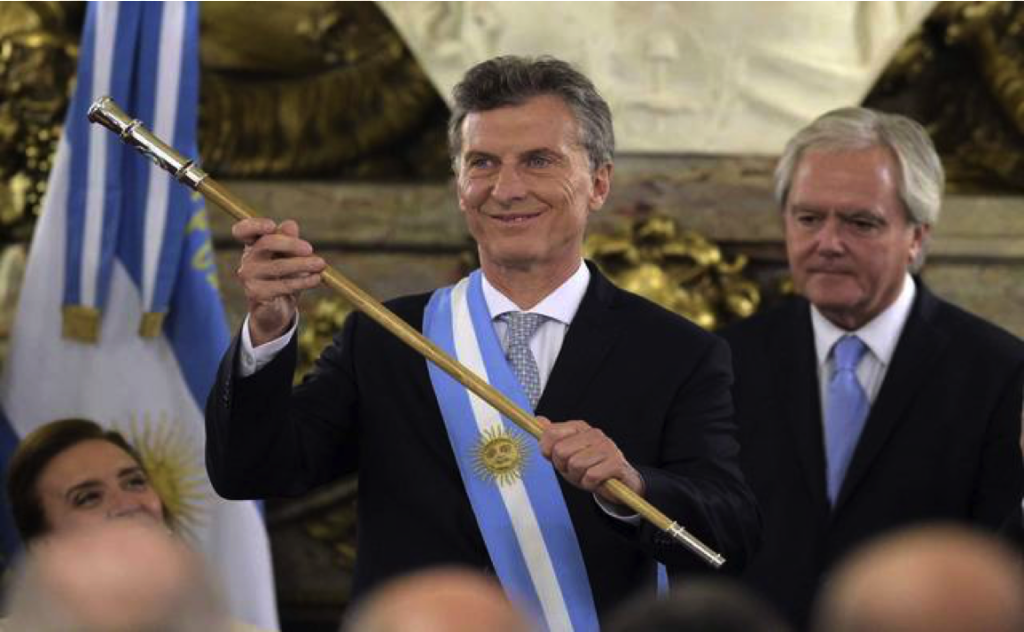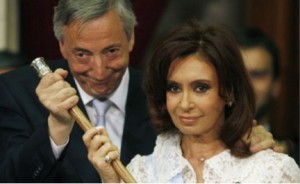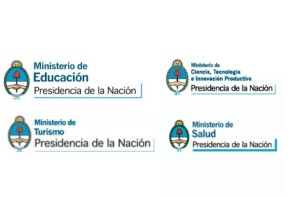In 1982, a continuing dispute over a few small, sparsely populated islands in the South Atlantic became the catalyst for a brief war between Argentina and the United Kingdom, resulting in a decisive British victory. Paying tribute to the long and complicated history of these islands, Museo Las Malvinas (Malvinas Museum) is located on the grounds of the former Naval Officer Mechanic School and is now one of the newest and most prized museums in the Argentine capital of Buenos Aires. Since its opening, the museum watchtower has maintained vigil over the main highway running through Buenos Aires, proudly displaying the word “Sovereignty”, and reminding commuters of Argentina’s enduring ambition to govern these otherwise undistinguished islands in the South Atlantic.
According to the March 2016 United Nations Commission on the Limits of the Continental Shelf (CLCS), the Falklands/Malvinas lie within Argentina’s maritime borders. Thirty-four years after fighting to keep the islands, the British see this as a new threat to their continuing sovereignty over the islands and their surrounding waters. Learning from past mistakes, Argentina has introduced a new weapon in the struggle over the South Atlantic –not a machine of war, but a potentially more terrifying and effective tool: lawyers.
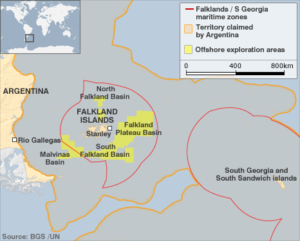
Miscalculation
The struggle for sovereignty of the islands is nearly two centuries old. English Captain John Strong discovered the islands in 1690 and the first British settlement followed in 1766. For decades British control of the islands waxed and waned during multiple international wars, no easy feat as the Falklands/Malvinas are located a daunting 7,939 miles from London and a mere 415 miles east of the Argentine city of Rio Gallegos. Finally in 1833, after several disputes with the fledgling Argentine Confederation, the British solidified control and have maintained their hold on the islands despite the expense of supporting the territory over such a vast distance. With only 2932 English residents, the Falklands/Malvinas are one of the most expensive foreign territories per capita in the world.
The pursuit of sovereignty over the Falklands/Malvinas was a costly decision for Argentina’s military dictatorship. In 1982, daily strikes by labor unions and anti-government supporters were a result of the loss of confidence in the leadership of Lt. General Leopoldo Galtieri who had assumed command of the junta after a 1976 coup that deposed President Isabel Perón. Unemployment rates were skyrocketing, and the inflation rate ballooned to more than 600 percent. In an effort to distract the population from the collapsing economy and to restore national pride and support for the government, Galtieri ordered the invasion of the Falklands/Malvinas on 2 April 1982.
The initial days of fighting saw great success for the Argentine military. The first 4,000 soldiers arriving on the islands met minimal resistance and quickly took control, raising their flag over the captial city, Port Stanley. Their victory ignited strong nationalism, pride, and support for the military by ordinary Argentines that flooded the streets of every city in the country. The military government fostered this sentiment by publishing propaganda and positive reports promoting the success of their military. Triumphant claims —“Estamos Ganando” (We Are Winning) graced the covers of newspapers and magazines nationwide.
Across the Atlantic, the British government rapidly prepared a response force to take back the islands. Less than three weeks after the initial invasion, the UK launched a counterattack with more than 120 ships, 160 aircraft, and multiple Special Air Service (SAS) and commando units. The British quickly gained the initiative, and by 14 June 1982 the 3-month war was over. In the end, a little more than two months of combat resulted in the deaths of 648 Argentine, 255 British service members, and three civilians. Most of the Argentine casualties –and the fighting spirit of the Argentine Navy– lay at the bottom of the Atlantic with the ARA Belgrano, sunk by a British torpedo. The islands have remained securely in Britain’s hands ever since.
Black Gold
A few months after the war, the international community legitimized the British presence in the South Atlantic. The 1982 UN Convention on the Law of Sea established the limits of the continental shelf and solidified British rights to the water and resources surrounding the Falklands/Malvinas. In 1998, after tentative discoveries 20 years earlier, the British began drilling the first offshore oil wells, discovering large reserves in the area with two fields, Sea Lion and Isobel Elaine, thought to hold half a billion barrels of recoverable oil each. These, and many other repositories around the islands, have the potential to make the tiny population there one of the richest communities per capita in the world.
The discovery of oil intensified debate on both sides of the Atlantic but the situation on the ground remains quite complex. Though a majority of Argentines believe that the Falklands/Malvinas belong to Argentina, multiple referenda reveal the actual residents of the islands want to remain under the British crown. Citing concerns about stability and security, the British maintain a substantial military presence that includes strike aircraft, warships, and more than 1,300 service members. The Argentine government sees the presence of such a large and active military force as a threat and has argued this point continuously and unsuccessfully to the international community.
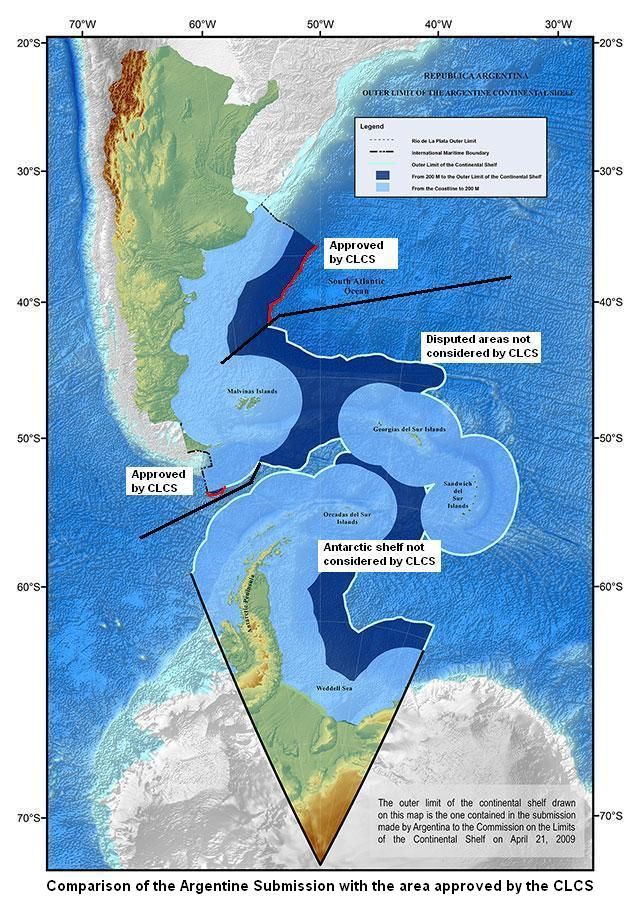
Changing the Game
In 2015, Argentina began to use a different approach that avoids direct confrontation with Britain. Filing a petition with the United Nations, the Argentine leadership decided to pursue international arbitration to prove the islands reside within the maritime territory of Argentina. In March 2016, after more than nine months of debate, the CLCS extended the maritime territory of Argentina by 35%. By doing so, the UN acknowledged Argentina’s claims that the Falklands/Malvinas lie within its maritime territory.
Victorious on the battlefield and secure on the basic question of governance of the islands, Britain now faces an unusual challenge to its supremacy in the South Atlantic –an internationally-arbitrated legal battle over resources. Historically committed to international cooperation and the rule of law, the UK would face significant challenges should it choose to ignore the UN, especially as doing so would set a precedent for other states looking to circumvent international arbitration.
Argentina may not yet have achieved the lofty goal of “Sovereignty” as displayed atop the watchtower at the Las Malvinas Museum, but it has found traction in pursuing a legal resolution to the territorial dispute. Now more than ever, the Falklands/Malvinas are an economically and strategically significant territory for the UK, and it is unlikely Britain will let the islands go easily. However, after nearly two centuries of struggle, the balance of power relationship in the South Atlantic may finally shift to favor Argentina thanks to a new tactic that neutralizes the otherwise superior power of the British. Perhaps the pen is truly mightier than the sword.
 CPT Jonathan Nielsen is a U.S. Army Infantry Officer with combat experience in multiple countries in the Middle East and extensive multinational training experience. He is currently attending the University of Belgrano in Buenos Aires. The views expressed in this article are those of the author and do not reflect the official policy or position of the U.S. Army, or the Department of Defense.
CPT Jonathan Nielsen is a U.S. Army Infantry Officer with combat experience in multiple countries in the Middle East and extensive multinational training experience. He is currently attending the University of Belgrano in Buenos Aires. The views expressed in this article are those of the author and do not reflect the official policy or position of the U.S. Army, or the Department of Defense.



